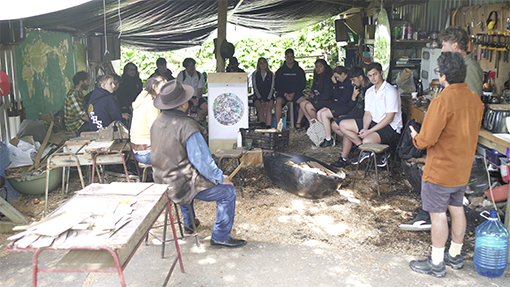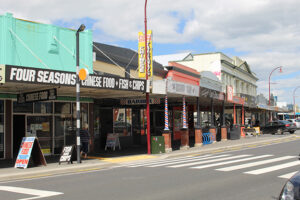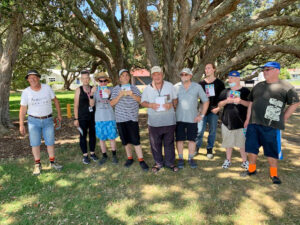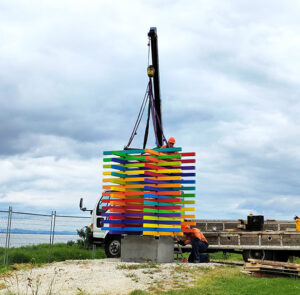Thames High School outdoor education students have carved their understanding of seasonal changes.
Massey University researcher, Paul Schneider and local carvers Fatu Feu’u and Darin Jenkins guided 13 students on a three-day carving workshop in Mid-November as part of Paul’s climate change research and the Calendars Project, which explores relationships between how institutions in Coromandel and Bergen, Norway live by seasons.
“It’s all about building relationships with people overtime and getting a feel for the seasonal rhythms underlying their yearly, daily and monthly activities,” he said.
“When you look at how people live by seasons, a very important question is what if these seasons are no longer how you’d expect them to be?
“If climatic conditions change, what does this mean for institutions like schools where there is talk to change when the summer holidays take place because increasingly what people are experiencing is that it gets hotter when kids go back in February.”
Paul, who lives on the Thames Coast, was invited by Thames High’s outdoor education coordinator Trif Sitnikoff to key seasonal activities, including their winter survival camp. During the camp, when students were sitting around a fire and telling stories, Paul observed they were naturally drawn to wood carving so the idea came up to get the students to carve their own calendar with a Coromandel spin.
“The interesting thing with children is they don’t have an agenda and they’re not really shaped by things like the working routine. They still have a potentially innocent view of the seasonal rhythms, so that’s why we thought it would be a great opportunity to get them to be creative and understand how they think about the year,” Paul said.
“Does the year for them start in January or at another time and what are the key symbols they can think of as part of those seasonal rhythms which they look forward to or feel anxious about.”
Paul said students found carving their calendars rewarding.
“The outcomes were in a lot of cases very beautiful where some took the lunar calendar as their underlying motto and others kept it simple by using two or three symbols throughout the year,” Paul said.
“We found that some children really look forward to summer because its longer days, its warmer and it’s more of an easy life whereas others really look forward to winter because that’s when they have key activities like sport.”
Paul also conducted monthly bush walks with Te Puru School’s year eight class this year and plans to do the Calendars Project with them in the future. The 16 students took details of what caught their attention in certain locations and then on the next trip would revisit those locations and take note of any changes.
“While there were only subtle changes, they were still able to pick up on things like bird song, moisture in the ground, water temperature, the green tones of the fresh groves, and the fruiting of kawakawa trees,” he said.
“So over the year their awareness was sharpened in understanding the seasonal rhythms in a natural setting.”




